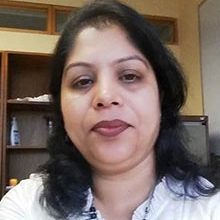EEG Signal Processing: New Approaches
A special issue of Signals (ISSN 2624-6120).
Deadline for manuscript submissions: closed (30 June 2023) | Viewed by 620
Special Issue Editors
Interests: BCI; EEG; brain research
Special Issues, Collections and Topics in MDPI journals
Interests: biomedical signal processing; non-stationary signal analysis; artificial intelligence; machine learning; deep learning
Special Issues, Collections and Topics in MDPI journals
Interests: biomedical signal processing; artificial intelligence (AI); data mining; detection of neurological diseases from EEGs; brain–computer interface (BCI)
Special Issues, Collections and Topics in MDPI journals
Special Issue Information
Dear Colleagues,
Electroencephalography (EEG) is a well-known screening test for examining cognitive abilities in both health and disease. EEG signal processing involves acquiring, evaluating, and treating electroencephalography-measured brain electrical activity. In a wide range of sectors, including healthcare, biomedicine, biomedical engineering, the brain–computer interface, and biometrics, recent advances in signal processing and machine learning for EEG data processing have made tremendous progress in addressing a wide range of practical and demanding problems. This Special Issue aims to present and discuss recent advances in EEG signal analysis and processing. The submission of original research on unique concepts, methodologies, technological expertise, fusion with other diagnoses, and meaningful applications that can lead to significant breakthroughs in EEG data analytics is welcomed.
Dr. Xiaojun Yu
Dr. Muhammad Tariq Sadiq
Dr. Siuly Siuly
Guest Editors
Manuscript Submission Information
Manuscripts should be submitted online at www.mdpi.com by registering and logging in to this website. Once you are registered, click here to go to the submission form. Manuscripts can be submitted until the deadline. All submissions that pass pre-check are peer-reviewed. Accepted papers will be published continuously in the journal (as soon as accepted) and will be listed together on the special issue website. Research articles, review articles as well as short communications are invited. For planned papers, a title and short abstract (about 100 words) can be sent to the Editorial Office for announcement on this website.
Submitted manuscripts should not have been published previously, nor be under consideration for publication elsewhere (except conference proceedings papers). All manuscripts are thoroughly refereed through a single-blind peer-review process. A guide for authors and other relevant information for submission of manuscripts is available on the Instructions for Authors page. Signals is an international peer-reviewed open access quarterly journal published by MDPI.
Please visit the Instructions for Authors page before submitting a manuscript. The Article Processing Charge (APC) for publication in this open access journal is 1000 CHF (Swiss Francs). Submitted papers should be well formatted and use good English. Authors may use MDPI's English editing service prior to publication or during author revisions.
Keywords
- EEG signal processing
- brain–computer interface
- machine learning
- deep learning
- novel indexes for EEG state identification
- convolutional neural networks
- EEG autoencoders
- generative adversarial networks for EEG
- data fusion techniques for brain data
- EEG data analytics
- signal decomposition methods for EEG
- brain states classification from EEG
- advanced artefact reduction in EEG
- EEG feature selection and generation
- wearable EEG
- virtual reality with EEG







